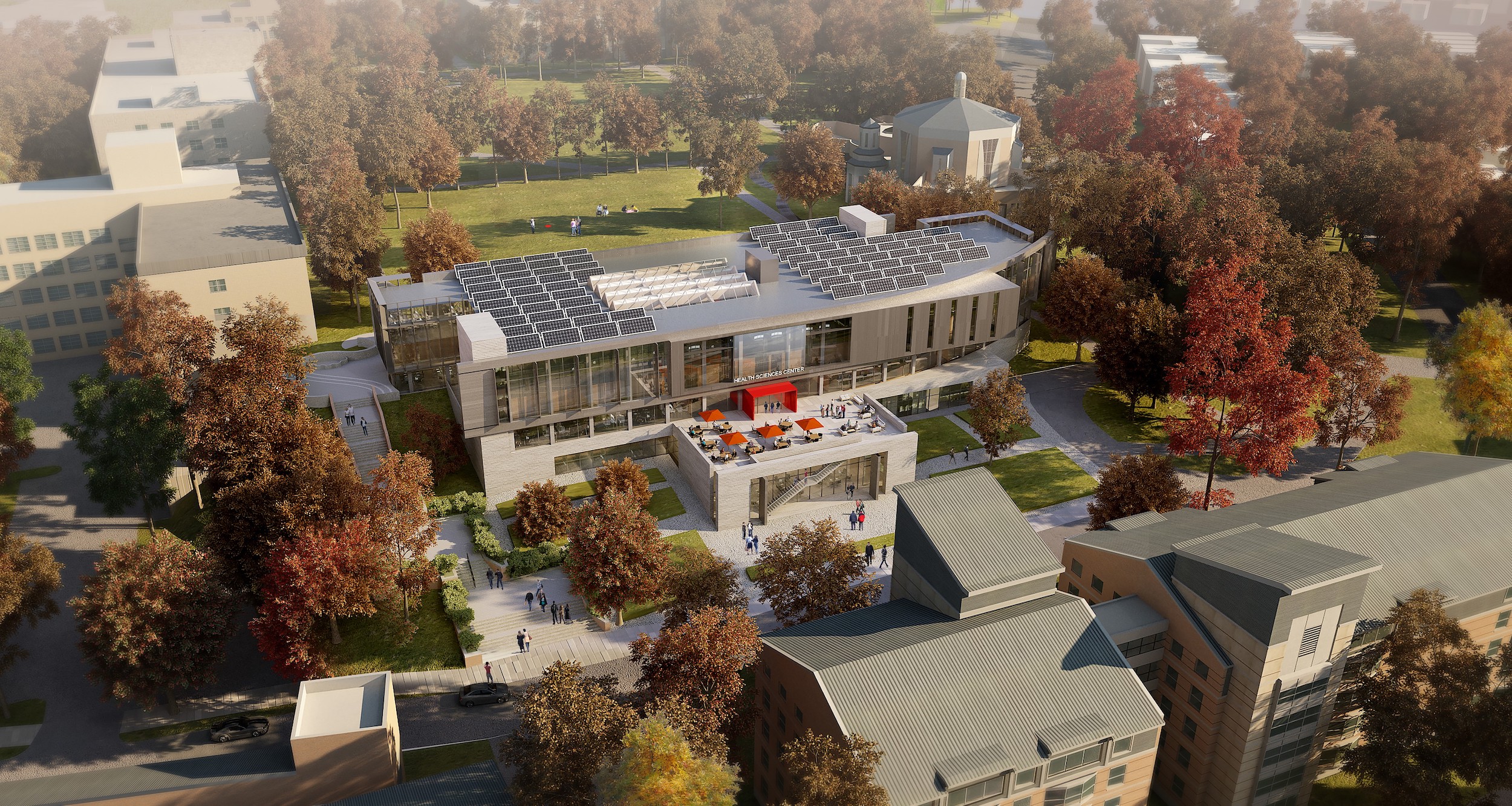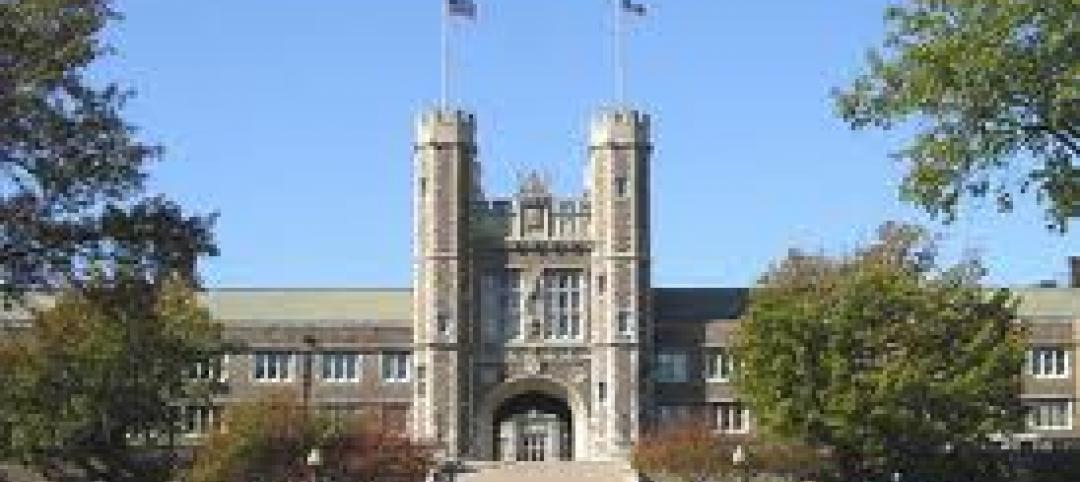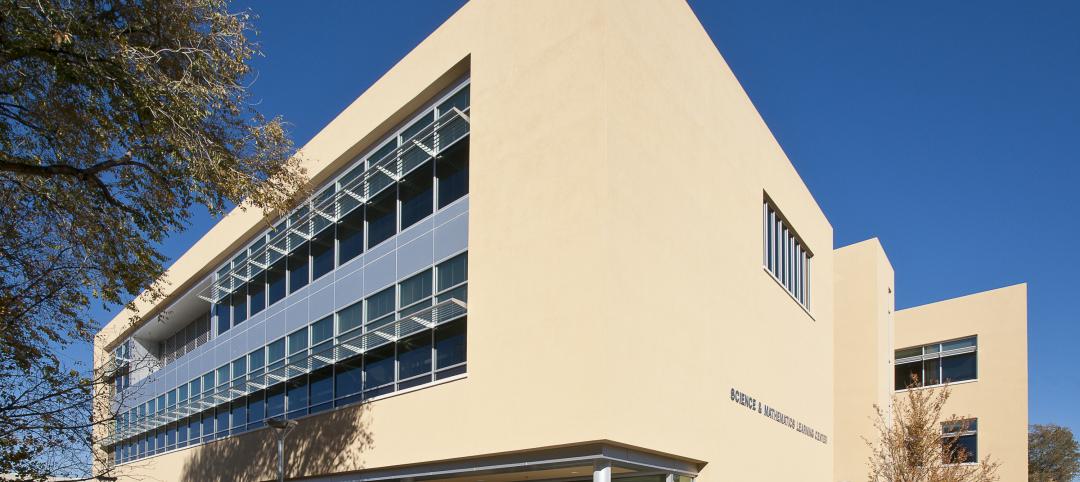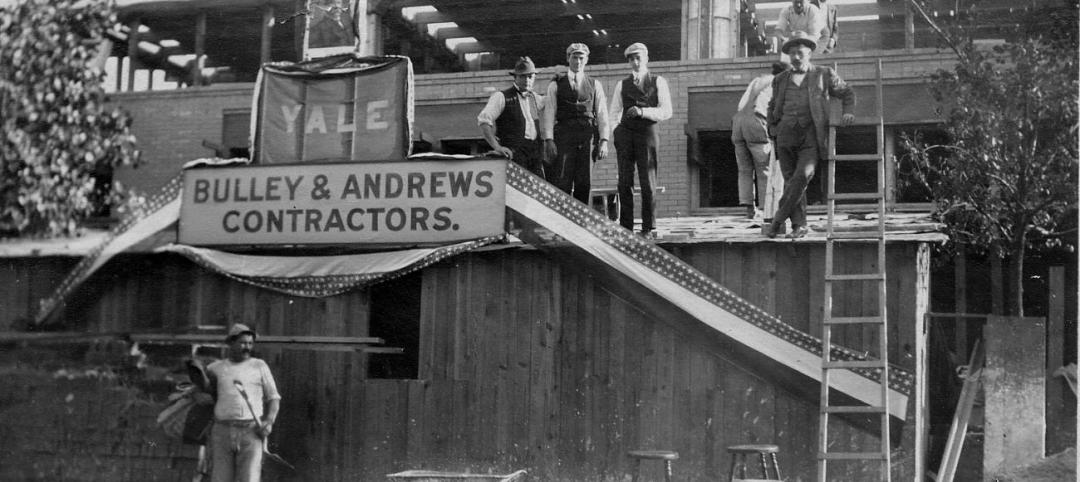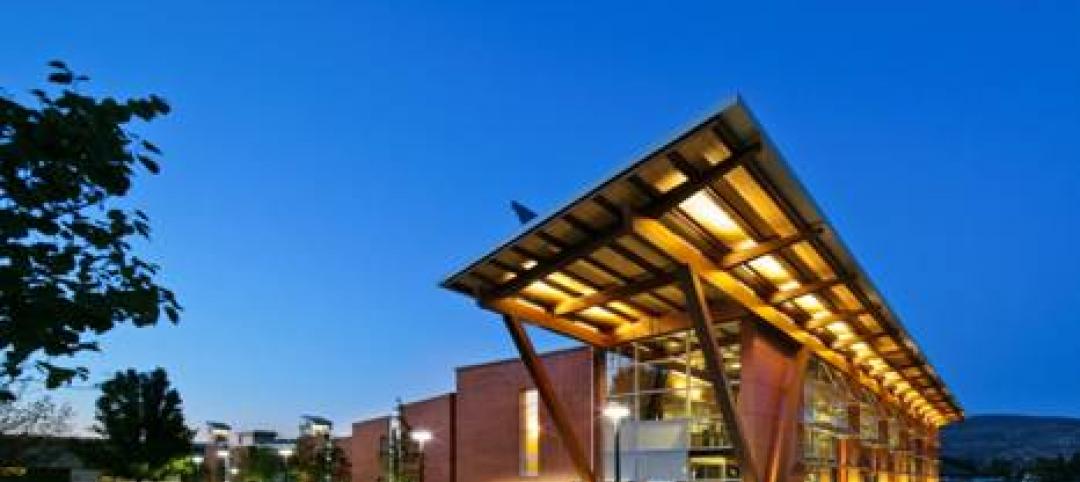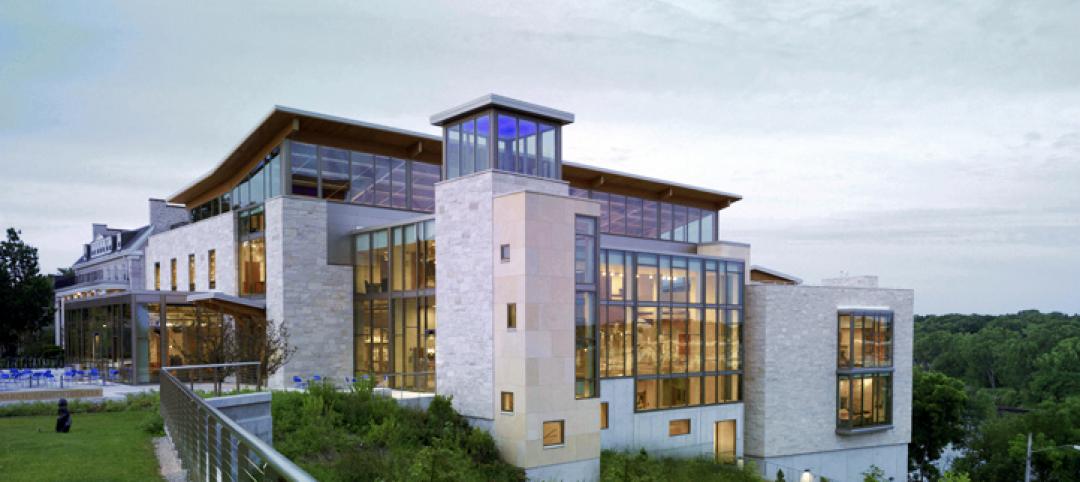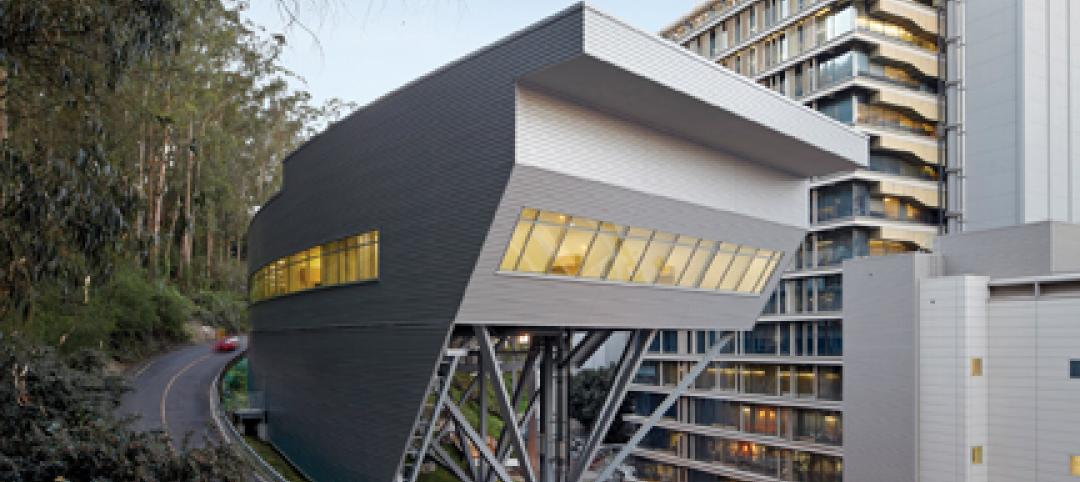The recently topped off St. Vincent Health Sciences Center at St. John’s University in New York City will feature impressive green features, including geothermal heating and cooling and an array of rooftop solar panels. The geothermal field consists of 66 wells drilled 499 feet below ground which will help to heat and cool the 70,000-sf structure.
High-performance, energy-efficient windows will reduce thermal loss. The elongated east-west floor plan of the building will maximize daylight, and skylights will help reduce artificial lighting usage by 22% during daylight hours. State-of-the-art building control systems will optimize lighting, space occupancy, and temperature throughout the building. The facility is projected to be one of the greenest buildings on campus.
The bright, sun-splashed Dorethea and Nickolas Davatzes Atrium will welcome visitors as they enter from the Great Lawn. The center will feature state-of-the-art classrooms, cutting-edge laboratories, patient simulation facilities, and transformative virtual reality technology to support real-world clinical training that is redefining what is possible in the healthcare industry, according Shawmut Design and Construction, the project's construction manager.
When complete, the building will feature collaborative spaces, outdoor terraces, and attractive vistas to become a hub for generations of caregivers, healthcare professionals, and individuals who are committed to improving the lives of others. The facility is scheduled to open in 2024.
Owner and/or developer: St. John’s University
Design architect: CannonDesign
MEP engineer: CannonDesign
Structural engineer: CannonDesign
Construction manager: Shawmut Design and Construction
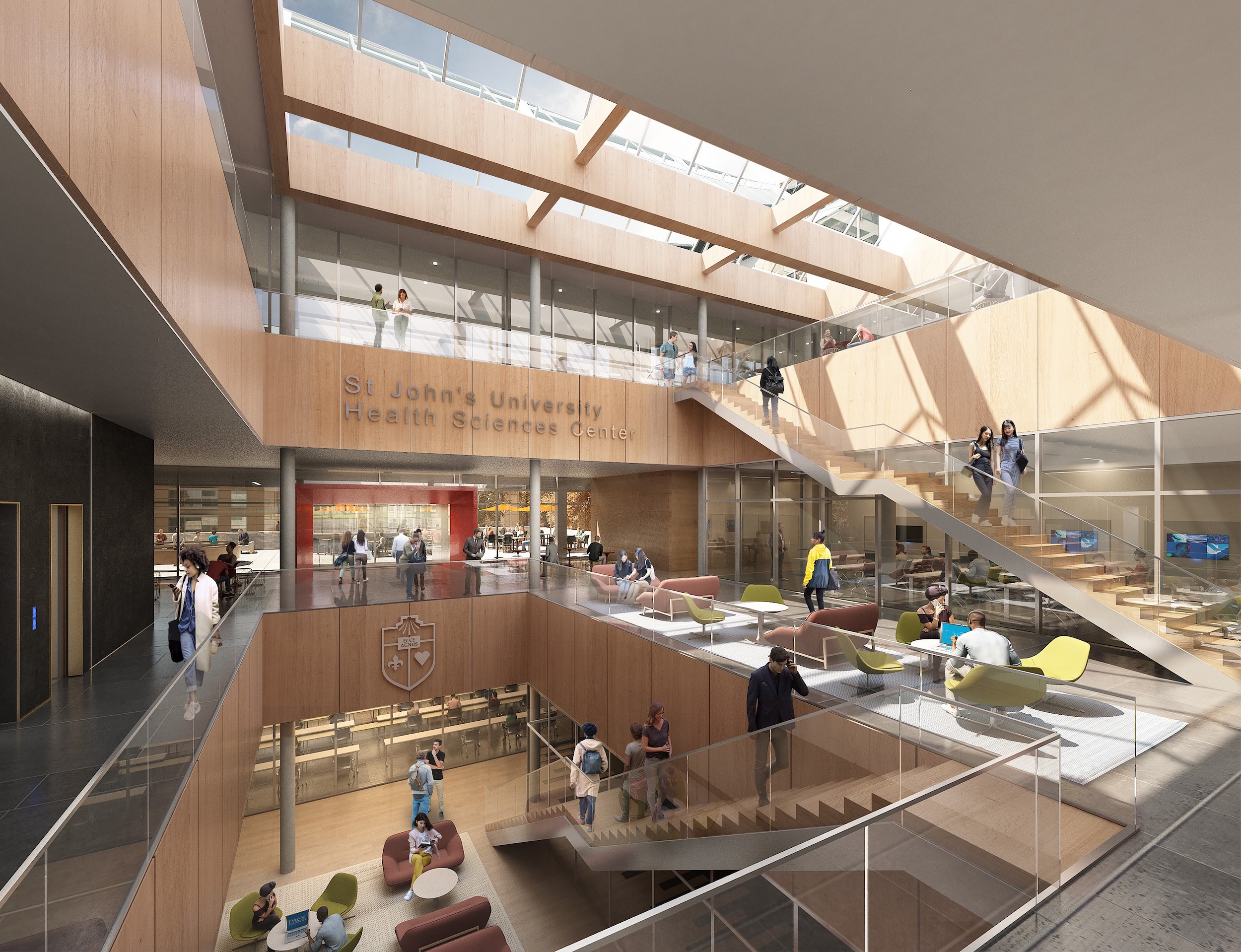
Related Stories
| Oct 17, 2011
Clery Act report reveals community colleges lacking integrated mass notification systems
“Detailed Analysis of U.S. College and University Annual Clery Act Reports” study now available.
| Oct 14, 2011
University of New Mexico Science & Math Learning Center attains LEED for Schools Gold
Van H. Gilbert architects enhances sustainability credentials.
| Oct 12, 2011
Bulley & Andrews celebrates 120 years of construction
The family-owned and operated general contractor attributes this significant milestone to the strong foundation built decades ago on honesty, integrity, and service in construction.
| Sep 30, 2011
Design your own floor program
Program allows users to choose from a variety of flooring and line accent colors to create unique floor designs to complement any athletic facility.
| Sep 23, 2011
Okanagan College sets sights on Living Buildings Challenge
The Living Building Challenge requires projects to meet a stringent list of qualifications, including net-zero energy and water consumption, and address critical environmental, social and economic factors.
| Sep 14, 2011
Research shows large gap in safety focus
82% of public, private and 2-year specialized colleges and universities believe they are not very effective at managing safe and secure openings or identities.
| Sep 7, 2011
KSS Architects wins AIA NJ design award
The project was one of three to win the award in the category of Architectural/Non-Residential.
| May 18, 2011
Major Trends in University Residence Halls
They’re not ‘dorms’ anymore. Today’s collegiate housing facilities are lively, state-of-the-art, and green—and a growing sector for Building Teams to explore.
| May 18, 2011
Raphael Viñoly’s serpentine-shaped building snakes up San Francisco hillside
The hillside location for the Ray and Dagmar Dolby Regeneration Medicine building at the University of California, San Francisco, presented a challenge to the Building Team of Raphael Viñoly, SmithGroup, DPR Construction, and Forell/Elsesser Engineers. The 660-foot-long serpentine-shaped building sits on a structural framework 40 to 70 feet off the ground to accommodate the hillside’s steep 60-degree slope.


